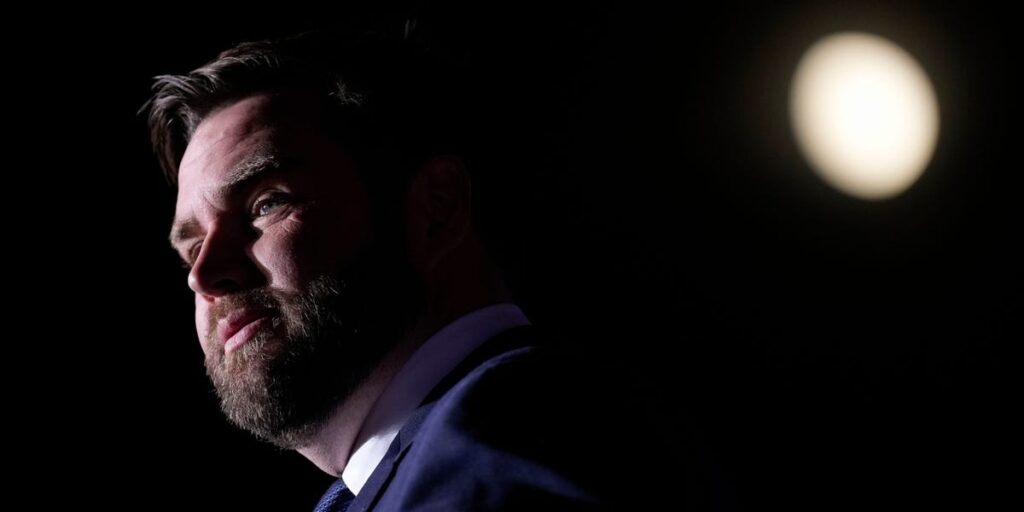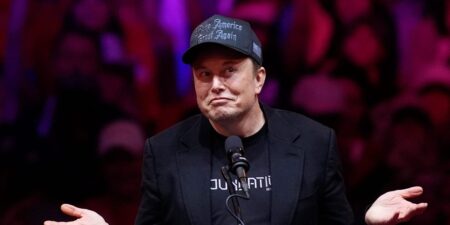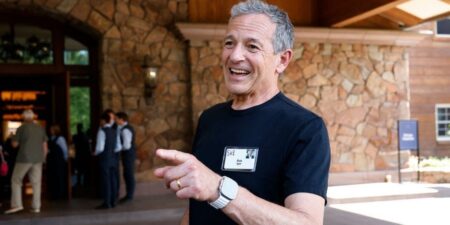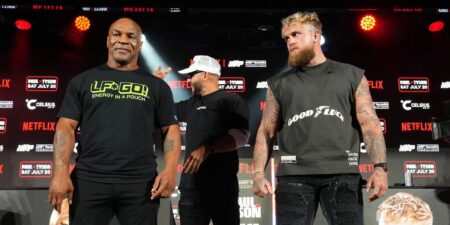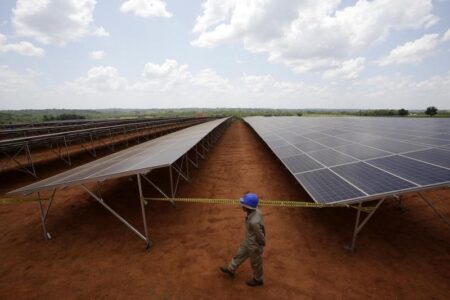Donald Trump’s running mate, JD Vance, has made his stance on Ukraine clear: He doesn’t “really care” what happens to Ukraine.
The Ohio senator, who was named GOP nominee for Vice President on Monday, made the comments during an episode of Steve Bannon’s War Room podcast days before Russia invaded Ukraine in February 2022.
Since then, the 39-year-old has attempted to block millions of dollars in government aid to Ukraine and has criticized the Biden administration for its focus on the invasion.
If Vance is elected as Trump’s vice president in November, the country’s war efforts could suffer a massive setback, experts say.
Vance and Trump will likely try to block future Ukraine aid
Mark Temnycky, a nonresident fellow with the Atlantic Council’s Eurasia Center, told Business Insider that Trump and Vance will likely try to block or scale back US aid if they are elected in November.
“Ukraine would have to rely more heavily on European assistance and involvement as the US scales back,” Temnycky said.
An unnamed senior EU official told Politico that the appointment of Vance is a “disaster” for Ukraine and the European Union as it continues to support the nation.
According to its website, the EU has provided €88 billion, or around $95.7 billion, in economic, humanitarian, and military aid since the beginning of the invasion.
Meanwhile, the US had sent $175 billion in aid to Ukraine as of May, per the Committee for a Responsible Federal Budget.
Vance was one of 18 senators who voted against a $95 billion aid package to Ukraine and Israel in April.
The bill was ultimately approved, though Vance told reporters that it was “pretty clear to Europe and the rest of the world that America can’t write blank checks indefinitely,” according to Politico.
Speaking on Steve Bannon’s War Room podcast in February 2022, he said: “I’m sick of Joe Biden focusing on the border of a country I don’t care about while he lets the border of his own country become a total war zone.”
Vance’s criticism echoes comments made by Trump, who said in May that he would be able to end the war in 24 hours if he became president.
“He fundamentally agrees with Trump. That’s precisely why neocon donors [who want more aid for Ukraine] fear him,” Tucker Carlson told Axios on Tuesday.
Speaking at a campaign rally in Detroit in June, Trump criticized the scale of the US’ financial support for Ukraine.
“He just left four days ago with $60 billion, and he gets home, and he announces that he needs another $60 billion. It never ends,” he said, referring to Ukraine’s president Volodymyr Zelenskyy, according to Politico.
Will Vance’s views change once he’s in office?
Nonetheless, experts say it’s difficult to judge Vance and Trump’s position before they get to the White House.
Sergej Sumlenny, founder of the European Resilience Initiative Center, a German think-tank, told BI that no scenario is out of the question.
“The short answer is that nobody knows. Nobody knows because they could do anything,” he said.
“Vance is famous for constantly changing his positions. He was a fierce opponent of Trump, and now he is his vice president,” he added.
“While Vance has come out strongly against Ukraine, he hasn’t been in a top job, and as vice president, I expect to see his views evolve,” Melinda Haring, a senior advisor for Razom for Ukraine, a US-based charity, told Reuters.
The vice president’s role shouldn’t be overstated
Vance could wield significant influence on Trump as vice president, but his role shouldn’t be overstated, according to Tom Packer, an Honorary Research Fellow at the Institute of the Americas at University College London.
“The vice president has got very little power,” he told BI.
While Vance is “clearly anti-interventionist; he clearly wants to pull back from a kind of strong confrontation with Russia,” the vice president’s job is not one that has “control over foreign policy.”
Vance “won’t be making foreign policy decisions,” Packer said.
Andrew Payne, a Lecturer in Foreign Policy and Security at City, University of London, made a similar statement.
“It is important not to overstate the role of the vice president in foreign affairs,” he told BI.
Very few vice presidents played a meaningful role in shaping foreign policy in modern times, with the most notable exceptions being Walter Mondale and Dick Cheney, he said.
“But in both cases, the presidents in question — Jimmy Carter and George W. Bush — proved willing to delegate authority in ways that would seemingly be anathema to Trump, given his “I alone can fix it” brand of leadership,” he said.
Still, Vance’s elevation as not just Trump’s VP pick but also the possible heir apparent to his MAGA political empire is a signal about the future of the Republican platform.
A pick like Sen. Marco Rubio — a more moderate voice on foreign police — would have been less concerning to Ukraine’s backers. A vice presidential nominee who had a measured policy on Ukraine could have been an olive branch to the few remaining Reagan-era conservatives who fiercely opposed Russian aggression.
But by choosing Vance, Trump is doubling down on his effort to reshape the GOP to fit his agenda, isolationist policies and all.
Read the full article here







